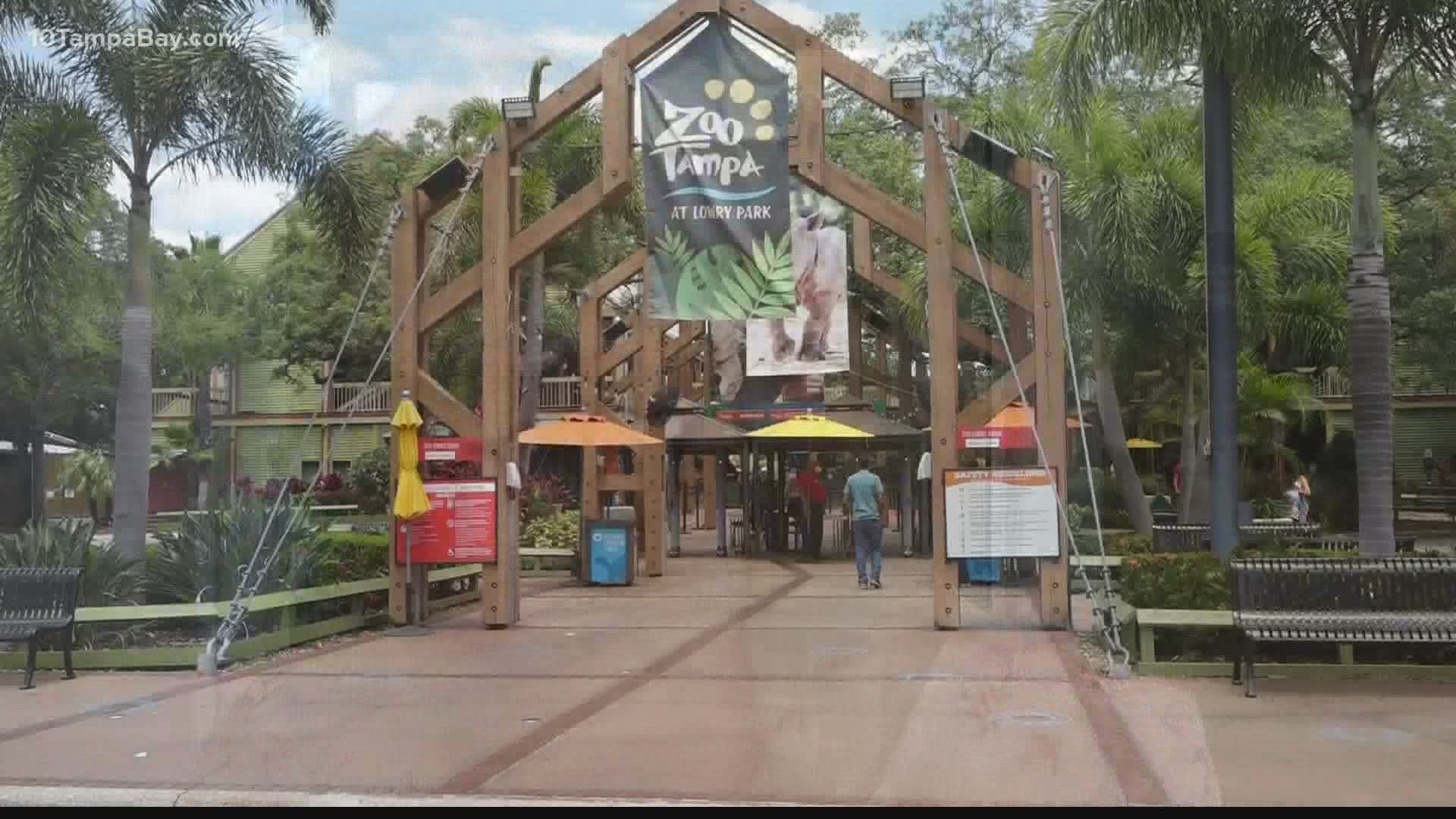TAMPA, Fla. — For close to a year, scientists were working on a vaccine to help us battle COVID-19.
But did you know at the same time biologists were formulating a shot for animals, too?
Now ZooTampa at Lowry Park is getting ready to keep the animals there safe from coronavirus as well.
“It is really exciting,” said Dr. Cynthia Stringfield, who is in charge of animal health and conservation at ZooTampa.
Dr. Stringfield is encouraged by recent news when it comes to a COVID-19 vaccine for animals. Turns out people aren't the only ones susceptible to the virus.
“Our goal is to keep our animals healthy and from getting sick,” she said, “So, we’re very very excited about the development of this animal vaccine.”
Zoologists first started seeing COVID-19 in big cats and primates, but then smaller mammals too.
Recently otters at an Atlanta zoo tested positive for the virus, which means relatives of that species might also be vulnerable.
“We knew that it is mammals,” said Dr. Stringfield, “So, we’re not going to worry about our birds and reptiles, but we definitely have learned a lot more just because there have been some cases in different facilities with animals.”
Fortunately, none of the zoo animals known to have contracted COVID-19 have died but those that have gotten sick, like Gorillas at the San Diego Zoo, have often exhibited similar symptoms to humans.
“Feeling off. Coughing, sneezing, diarrhea, respiratory symptoms,” said Stringfield. “Very, very similar to people.”
The vaccine for animals is completely different from the one for humans but similar in the way it was formulated and likely to be administered. It’s a two-shot regimen that, fortunately, seems to work for several species.
“It’s technology that we’ve used for years and years and years on animals. So, that’s great from a safety standpoint,” said Dr. Stringfield. “And also, the way that it works, working on the receptor means that it’s very broad. We can use it on lots of different types of animals, which is very exciting.”
The vaccine was developed by scientists overseas trying to save the mink industry, as in - fur coats.
That’s not particularly socially popular in the U.S., but the good news is they’re willing to share the vaccine they developed for free.
Zoo workers are still in the process of prioritizing which animals will and won’t receive the shots, which should be available later this summer, a decision based on risk versus reward.
Some mammals like giraffes and manatees haven’t shown issues with COVID-19, so they might go unvaccinated for now, said Dr. Stringfield, while primates and big cats - like the zoo’s Florida panthers – almost certainly will be.
What other people are reading right now:
- Tips to get your resume through applicant tracking systems
- Federal court upholds $30K in fines against Dunedin man for uncut lawn
- Video shows Hillsborough County deputy help alligator across busy intersection
- AP source: Feds execute warrant at Rudy Giuliani's NYC home
- CDC relaxes guidelines for wearing masks outdoors
- Turnout low as Johnson & Johnson vaccine returns in Florida
►Breaking news and weather alerts: Get the free 10 Tampa Bay app
►Stay In the Know! Sign up now for the Brightside Blend Newsletter

